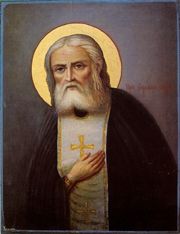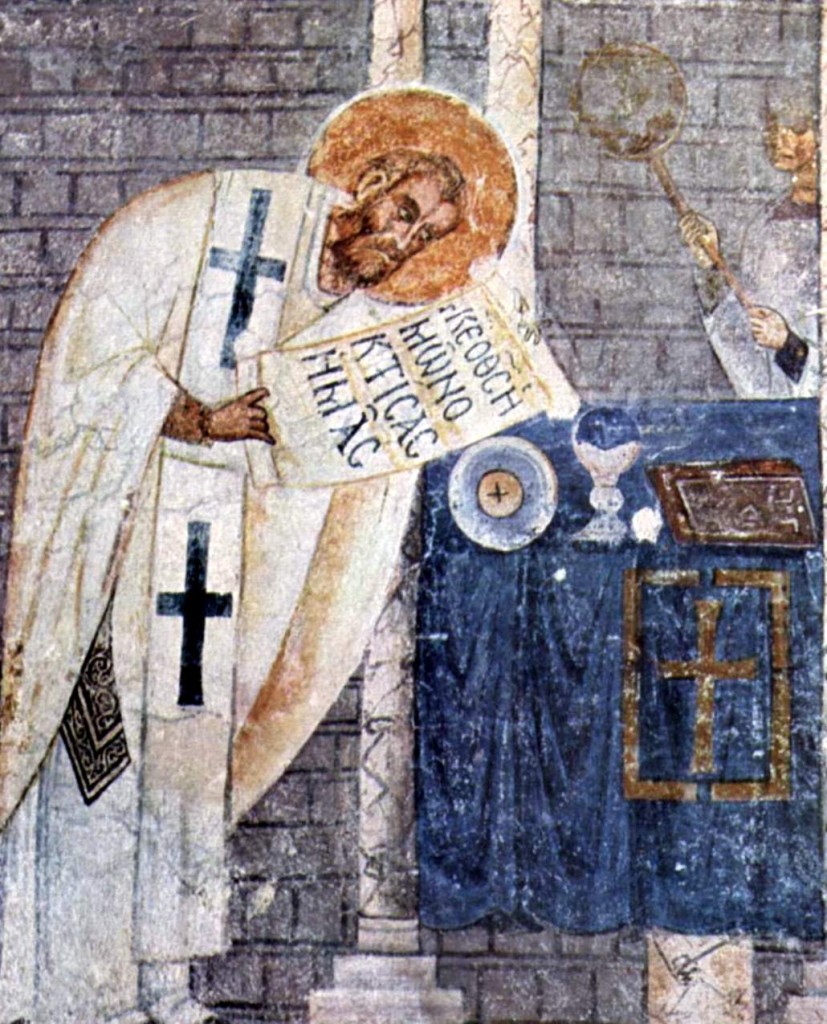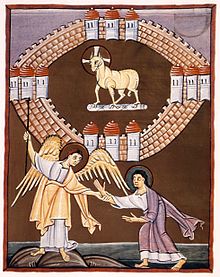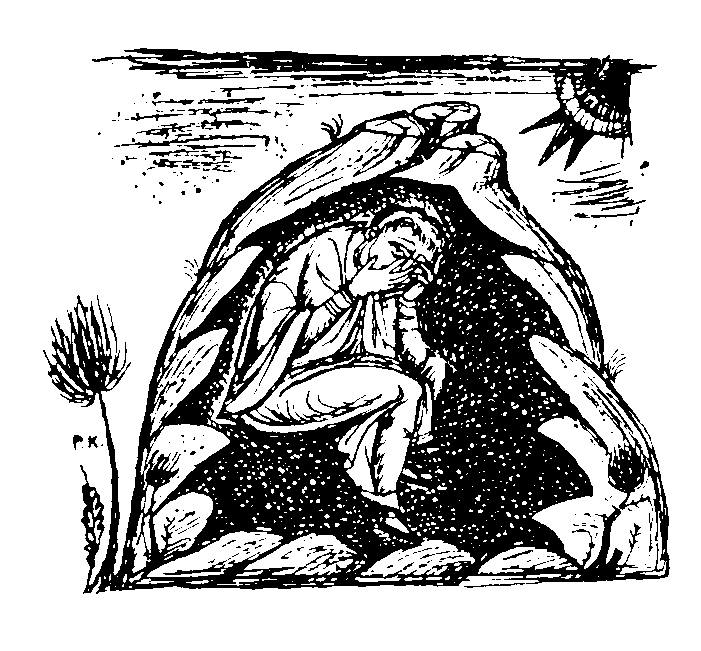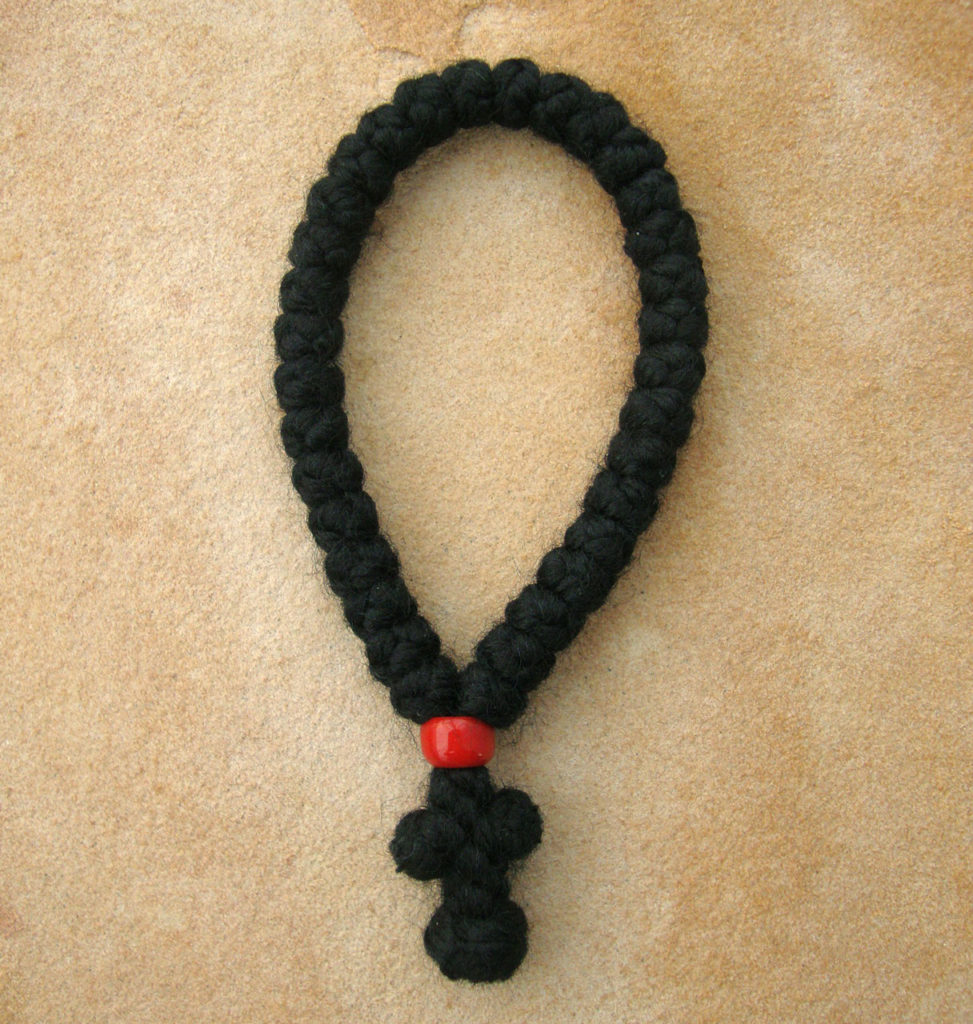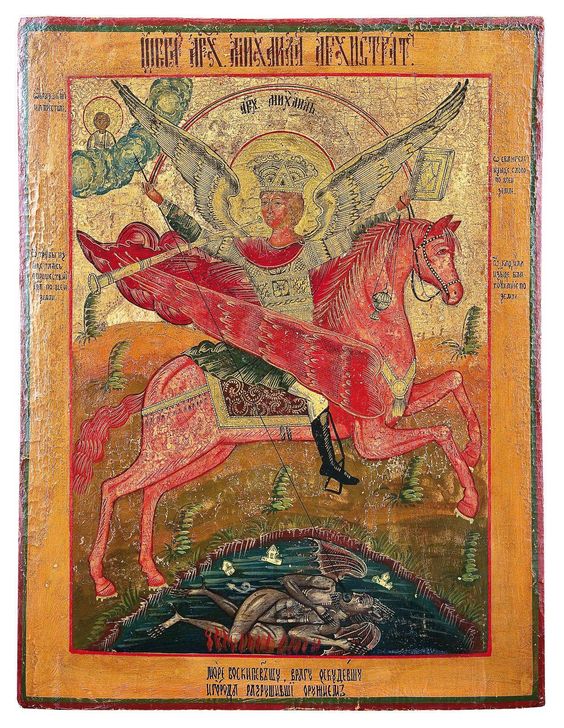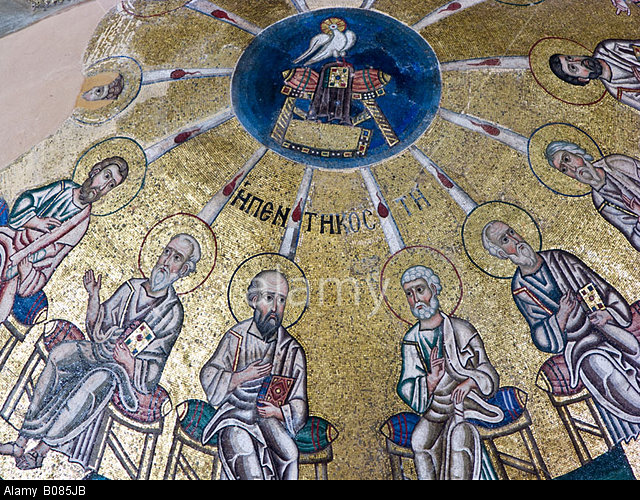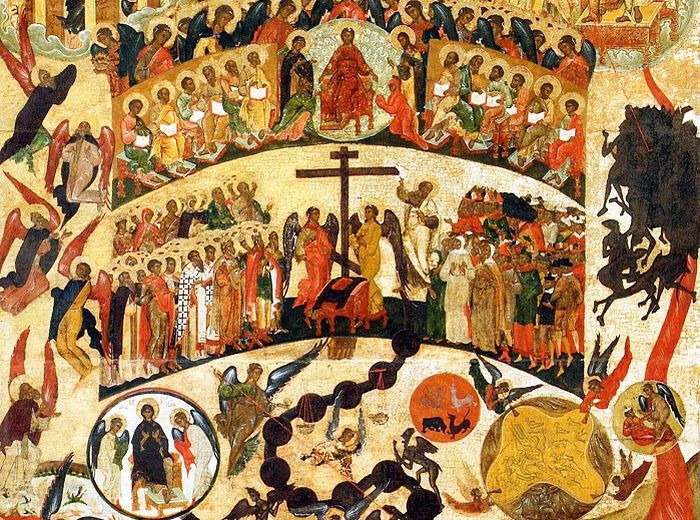2 January OS – Forefeast of Theophany; St. Sylvester, Pope of Rome; St. Seraphim, Wonderworker of Sarov
Listen to an audio podcast of this post at https://www.spreaker.com/episode/in-thy-light-shall-we-see-light-2-january-os-st-seraphim-of-sarov–52440554
Today, the second of January, is the day of the repose of a great saint of recent times, Seraphim of Sarov, who passed over into the heavenly kingdom on this day in 1833. You can obtain a good short hagiography of St. Seraphim by Constantine Cavarnos – Volume V of his “Modern Orthodox Saints” series – from The Institute for Byzantine and Modern Greek studies – here: http://ibmgs.org/lives.html, and a good short collection of his known sayings from St. Herman Press – Volume I of their “Little Russian Philokalia” series – here: https://www.sainthermanmonastery.com/product-p/lrp1.htm . The saint did not leave any of his own writings, as far as we know – what we have are recollections of his disciples, as is the case also, for example, with St. Cosmas Aitolos and St. Herman of Alaska .
In recent times, St. Seraphim has played a critical part in converting many non-Orthodox Christians to the Faith. His Conversation with Motovilov is a short summary of the entire spiritual life from the Orthodox point of view. It tells the potential convert, in a few thousand words, without saying so directly, why non-Orthodox Christians should leave Roman Catholicism and Protestantism and become Orthodox. For the pious cradle Orthodox, it might explain to you, in a few thousand words, “Yes, that is why I could never be anything but Orthodox, though I never thought about it in exactly this way.”
In this conversation with Nicholas Motovilov, St. Seraphim teaches that the goal of the Christian life is the acquisition of the Holy Spirit, and at the end of the conversation, a visible epiphany of the saint’s attainment of this goal is granted to his disciple. Here is a portion of Motovilov’s description of what happened:
...Father Seraphim took me very firmly by the shoulders and said: “We are both in the Spirit of God now, my son. Why don’t you look at me?”
I replied: “I cannot look, Father, because your eyes are flashing like lightning. Your face has become brighter than the sun, and my eyes ache with pain.”
Father Seraphim said: “Don’t be alarmed, your Godliness! Now you yourself have become as bright as I am. You are now in the fullness of the Spirit of God yourself; otherwise you would not be able to see me as I am.”
Then, bending his head towards me, he whispered softly in my ear: “Thank the Lord God for His unutterable mercy to us! You saw that I did not even cross myself; and only in my heart I prayed mentally to the Lord God and said within myself: ‘Lord, grant him to see clearly with his bodily eyes that descent of Thy Spirit which Thou grantest to Thy servants when Thou art pleased to appear in the light of Thy magnificent glory.’ And you see, my son, the Lord instantly fulfilled the humble prayer of poor Seraphim. How then shall we not thank Him for this unspeakable gift to us both? Even to the greatest hermits, my son, the Lord God does not always show His mercy in this way. This grace of God, like a loving mother, has been pleased to comfort your contrite heart at the intercession of the Mother of God herself. But why, my son, do you not look me in the eyes? Just look, and don’t be afraid! The Lord is with us!”
After these words I glanced at his face and there came over me an even greater reverent awe. Imagine in the center of the sun, in the dazzling light of its midday rays, the face of a man talking to you. You see the movement of his lips and the changing expression of his eyes, you hear his voice, you feel someone holding your shoulders; yet you do not see his hands, you do not even see yourself or his figure, but only a blinding light spreading far around for several yards and illumining with its glaring sheen both the snow-blanket which covered the forest glade and the snow-flakes which besprinkled me and the great Elder. You can imagine the state I was in!
“How do you feel now?” Father Seraphim asked me.
“Extraordinarily well,” I said.
“But in what way? How exactly do you feel well?”
I answered: “I feel such calmness and peace in my soul that no words can express it.”
You can read the entire conversation with Motovilov in Volume I of “The Little Russian Philokalia.” It is also available online at orthodoxinfo.com – http://orthodoxinfo.com/praxis/wonderful.aspx
Of course, the light that Motovilov saw is the light of Mt. Tabor, the light of the Transfiguration. It is the uncreated light of God. What sets authentic, Orthodox, spiritual experience apart from false spiritual experience is precisely the reality that it is spiritual, properly speaking, that is, that it takes place in the realm of the spirit; it is above and other than a purely psychosomatic experience; it is from above, a gift of grace, and grace is the uncreated energy of God. This authentic spiritual experience occurs when, by the free gift of God, the spiritual intellect, the nous, is joined to the heart – that is, when un-deluded logos, thought, is united to a pure will and pure feeling – and a man becomes, in the words of St. Macarius the Great, “all spirit.”
Extraordinary psychic experiences, which take place in the realm of the fallen intellect, imagination, and emotions – even, or especially, those that take place in out-of-body experiences – are not spiritual, and they are dangerous, because they take place on the level of the fallen human nature and the fallen creation, which is under the rule of the prince of this world, the devil. Just as the Son of God came into this world once to break the devil’s chains from us and lift us up to heaven, so the Spirit of God comes today, at every day and every hour, to lift up above this world our baptized human organism, which by baptism now partakes of Christ’s death and resurrection, and by the grace of the Holy Spirit partakes of authentic holiness.
For this to happen, however, a man must confess the right faith and receive baptism. St. Seraphim explains it like this:
“And whoever lives and believes in Me shall not die for ever (Jn. 11:26).” He who has the grace of the Holy Spirit in reward for right faith in Christ, even if on account of human frailty his soul were to die from some sin or other, yet he will not die for ever, but he will be raised by the grace of our Lord Jesus Christ Who takes away the sin of the world (Jn. 1:29) and freely gives grace upon grace. Of this grace, which was manifested to the whole world and to our human race by the God-Man, it is said in the Gospel: In Him was life, and the life was the light of men (Jn. 1:4); and further: And the light shines in the darkness; and the darkness did not overpower it (Jn. 1:5). This means that the grace of the Holy Spirit which is granted at Baptism in the name of the Father and the Son and the Holy Spirit, in spite of men’s falls into sin, in spite of the darkness surrounding our soul, nevertheless shines in the heart with the divine light (which has existed from time immemorial) of the inestimable merits of Christ. In the event of a sinner’s impenitence this light of Christ cries to the Father: ‘Abba, Father! Be not angry with this impenitence to the end (of his life)’. And then, at the sinner’s conversion to the way of repentance, it effaces completely all trace of past sin and clothes the former sinner once more in a robe of incorruption woven from the grace of the Holy Spirit, concerning the acquisition of which, as the aim of the Christian life, I have been speaking so long to your Godliness.
In another place in the same conversation, the saint says that this gift of being in the Spirit of Godis available both to the monk and to the non-monastic, provided both are Orthodox.
Let us, then take great consolation and hope from the words of our great saint of recent times! Though we sin a thousand times a day, yet we are Orthodox Christians, and we belong to Christ, Who has already bestowed upon us through baptism the indwelling grace of the Holy Spirit, which pleads for us even when we are in sin, which cries for us, “Abba, Father!” In one moment, the thief won Paradise. In one moment, like Nicholas Motovilov, we can be in the Spirit, by the merits of Christ and through the prayers of the Most Holy Theotokos, St. Seraphim, and all the saints. It is the free gift of grace, ours for the asking. Let us cry out to the Lord day and night, in gratitude for the gift we have already received and with earnest desire for its increase within us.
Holy Father Seraphim, pray to God for us!

